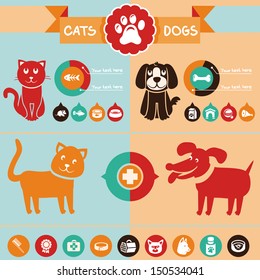Stress Free Overnight Stays
Stress Free Overnight Stays
Blog Article
Can Pet Dog Childcare Reason Disease?
Pets in day care receive great deals of workout, socialization with other pets and special experiences. This can be especially useful for pups and canines with behavioral concerns.
There are a number of legal factors to consider you require to think about when starting a doggy day care company. These include the structure of your company and conformity with federal government laws.
1. Pooch Distemper
Canine distemper is spread through direct contact with the bodily fluids and waste of an infected pet dog, yet it can additionally be sent via shared water and food bowls or through airborne droplets. This highly infectious health problem is most hazardous for pups, yet it can influence pets of any age and is fatal for most if left neglected.
Preliminary signs of canine distemper typically simulate a cold, consisting of dripping eyes and nose with watery or pus-like discharge. As the condition proceeds, a pet dog will certainly create high temperature, coughing, minimized hunger, throwing up and looseness of the bowels. The infection can likewise assault the nerve system, leading to seizures, jerking and partial or total paralysis.
Trustworthy childcares lower direct exposure to infection by calling for inoculations, regular health examinations and comply with stringent hygiene protocols. If your pup seems extremely weary or hopping, a day of rest may help him recoup, yet you must prevent taking him back to day care until these symptoms clear up.
2. Kennel Coughing
Kennel coughing, likewise referred to as infectious canine tracheobronchitis or Bordetella, is a highly transmittable viral or microbial illness that impacts the respiratory tract. It's generally moved via the exchange of saliva or air droplets that a sick dog breathes out. Social pet dogs are at higher threat for infection because of their regular interaction with each other, such as when they play, share food or water, smell one another or simply fulfill in a jampacked atmosphere like a canine park or daycare.
One of the most usual sign of kennel cough is a persistent and strong cough that sounds like something embeded the throat or retching. Commonly, canines will divulge foamy white phlegm. If left neglected, a canine can develop pneumonia and go to major risk permanently.
A trustworthy day care facility need to have stringent cleaning and hygiene procedures, sanitize all playthings, food and water bowls on a regular basis, and be open regarding their vaccination plans. Keeping your pet as much as date on their inoculations, board and training for dogs near me particularly for bordetella and canine influenza, will substantially minimize their chances of getting the disease.
3. Parvovirus
Canine parvovirus, or parvo, is a highly transmittable viral disease that can be deadly for pups and young adult dogs with bad immune systems. It's most generally spread by straight contact with polluted pet feces-- which can occur when dogs smell, lick, or taste contaminated feces-- and indirectly from contaminated individuals, items, or settings (like kennels, brushing rooms and yards). Puppies and pet dogs without complete inoculation histories are specifically vulnerable to parvo.
The virus is very resilient, making it through in the environment for as much as nine years, and can conveniently be transferred in between dogs by get in touch with through feces or on footwear, clothing, and bed linens contaminated with parvovirus. Otherwise treated promptly with IV fluids, electrolyte equilibrium, vomiting control drugs and antibiotics to stop secondary microbial infections, a dog will quickly dry out and establish extreme diarrhea, which brings about shock and sepsis. Parvo is tough to cure when a pet has come to be ill, but with proper veterinary care, several puppies do endure this illness.
4. Dog Flu
Canine flu infection is highly transmittable and spreads through direct call, sharing food and water bowls, licking or nuzzling other canines, via airborne droplets, and via contaminated surfaces. Inoculation is effective in minimizing the threat of infection and outbreaks.
A lot of influenced canines establish a light breathing infection with a coughing that lasts 1-3 weeks. They might also have nasal and ocular discharge, sneezing, and sleepiness. Some of the most severe instances result in pneumonia and a high fever.
If your canine shows any of these signs, do not bring them back to childcare until they are healthy. If your pet dog is revealing signs of extreme tiredness or hopping, talk to your vet as soon as possible and make sure they are on health supplements to aid build their immunity. A veterinarian will certainly review your dog for symptoms of the flu by taking an example from the nose or throat, and blood examinations can be done to validate.